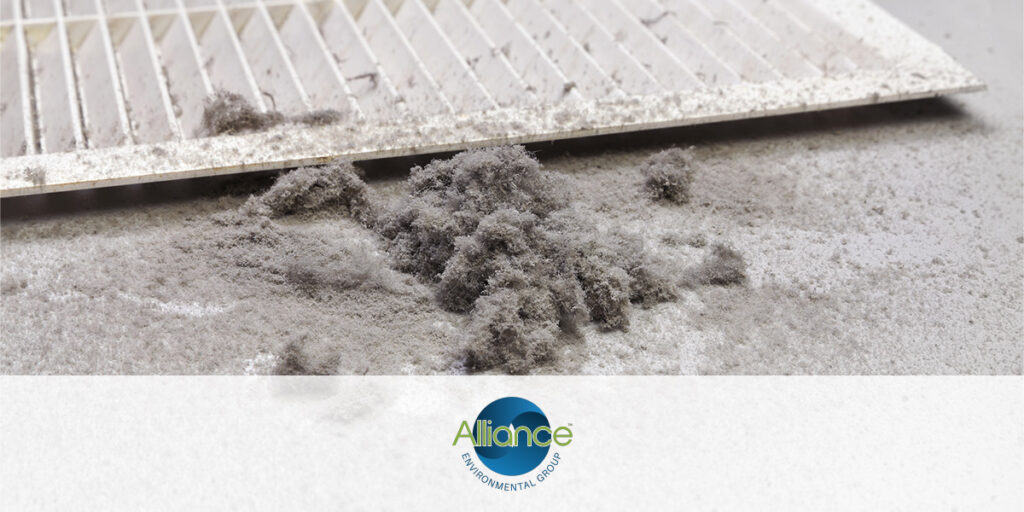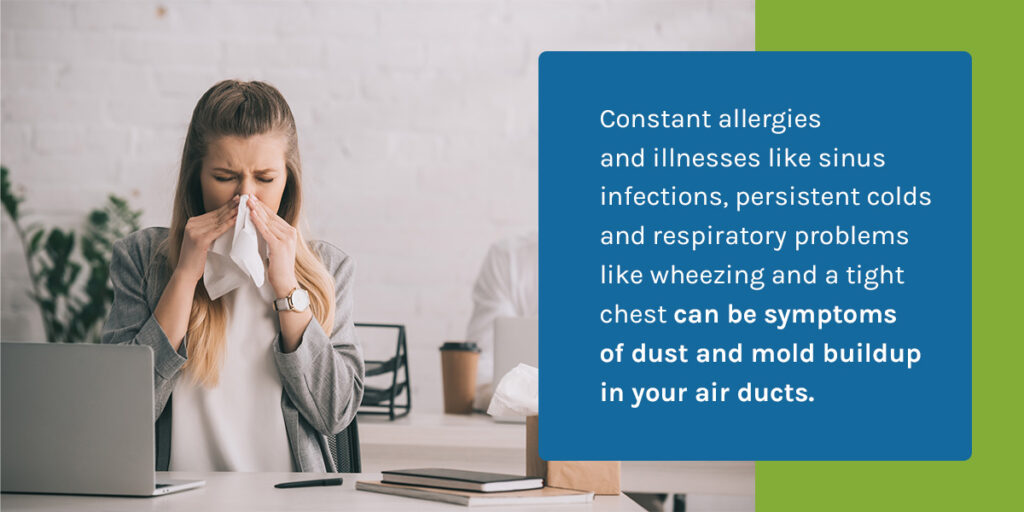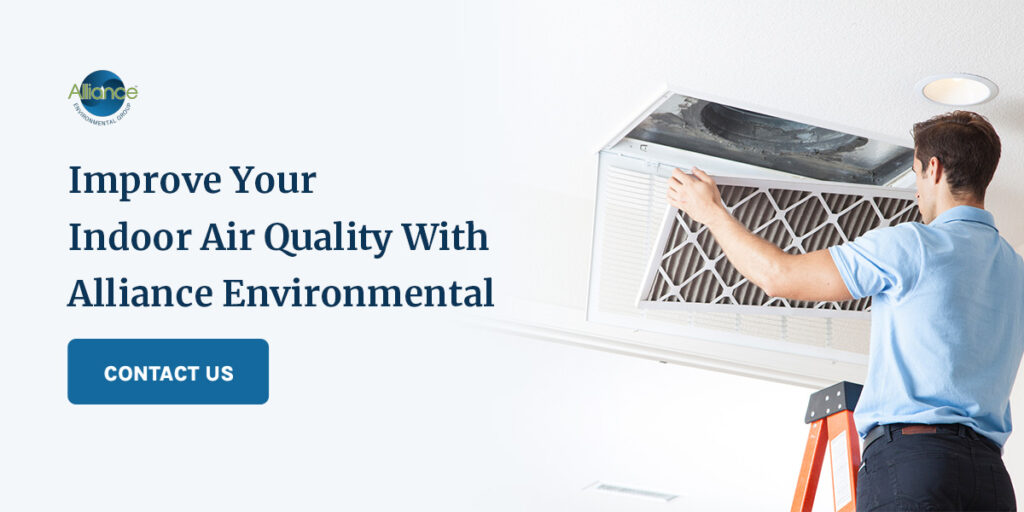- Careers
-
Search
- Call Us: 877-899-9867

Air duct cleaning frequency varies for many businesses and facilities. Factors like your climate, location and how often you use your HVAC system can determine a regular cleaning schedule. It’s essential to clean your air duct system regularly, especially when there is a buildup of excess dust and debris. Discover how frequently you should clean air ducts and why you shouldn’t put off this task.
One of the best recommendations is to clean your air duct every three to five years. Air ducts or HVAC systems distribute cold and hot air during winter and summer and can trap moisture and collect dust and debris over time.
Air duct or HVAC cleaning frequency can also depend on your climate, industry and how often you use your HVAC system. Your HVAC system can collect more dust and debris if you live in a windy, humid climate or near a construction site or an area with high pollution levels.
Healthcare businesses like medical offices, hospitals and nursing homes may require frequent air duct cleaning to ensure a healthy and clean atmosphere and comply with medical codes and regulations.
Your air ducts blow hot and cold air into your building and, over time, require cleaning to ensure they remain functional for healthy indoor air quality. Here are some benefits of cleaning your air ducts:
Clean air ducts also:
Consider cleaning your air ducts after you stop using your HVAC systems for heating and cooling your building in fall and spring so it’s ready for use in the winter and summer. It’s also essential to notice when your air ducts need cleaning. Here are some signs to look out for:
Excessive dust and debris in your air ducts or around your vents can affect your indoor air quality. Dust and other contaminants like pet hair, dander, dead skin cells and pollen can trigger allergies. They can pollute indoor air quality, triggering allergies in employees and clients. Dust and debris buildup can be especially hazardous for people in hospitals with various health issues like asthma and pneumonia.
Hot and cold air can cause moisture in air ducts, promoting mold and mildew growth. Without proper cleaning or sanitizing, mold and mildew can cause foul odors when using your HVAC system and can be harmful to indoor air quality.
Schedule cleaning if you notice mold growth in your air ducts. Breathing in mold can be a health hazard, triggering various allergens in staff and clients. Mold odors can also cause symptoms like itching and coughing.
HVAC systems’ vents and tubes can be a breeding ground for rodents and insects. Rodents like mice and rats can find their way into your air ducts, causing health violations and damaging your building’s infrastructure. Your air ducts may also attract insects like cockroaches and fleas, which can carry various illnesses and pose a health hazard, especially in healthcare facilities.

Dust mites and other allergens like mildew and dander can trigger allergies in staff and employees, especially those with respiratory illnesses like asthma. Constant allergies and illnesses like sinus infections, persistent colds and respiratory problems like wheezing and a tight chest can be symptoms of dust and mold buildup in your air ducts. Allergic reactions may be more severe for babies suffering from respiratory illnesses in hospitals or older people with various health and lung conditions in nursing homes.
If you plan on relocating your office, consider air duct cleanliness in vacant or previously owned buildings and facilities. You may need to schedule a professional cleaning to ensure the building’s HVAC systems are in good shape and free from excess dust, mold and pests before your staff settles in.
Building a new office can mean tearing down walls and ceilings, causing dust to accumulate in your air ducts. It may be best to schedule a professional air duct cleaning after building renovations to help remove any excess dust and debris that can block vents, affecting the functioning of your air ducts and indoor air quality.
Neglecting your building’s air ducts can affect the function of your HVAC systems and employee and staff experience. Here are some of the dangers of ignoring your air ducts:
Poorly maintained air ducts are noticeable to employees and clients. Besides various health concerns like allergic reactions, staff and customers may become concerned about the hygiene standards in your building, especially in medical facilities like an assisted living home or hospital. Unpleasant odors and vents brimming with dust and mold can be off-putting and leave a negative impression on clients, significantly impacting your brand reputation.
Without regular cleaning, your ducts can become blocked, affecting the airflow and indoor air quality throughout your building. Clogged air ducts can cause frequent breakdowns and affect the longevity of the HVAC system, leading to the need for repairs or replacements.
Buildings and facilities must create a healthy working environment for employees and ensure customers’ well-being. Poorly maintained air ducts can breach health code violations, especially in healthcare facilities.
Healthcare facilities like hospitals are responsible for ensuring public well-being. They must comply with indoor air cleanliness and health standards to prevent patients and doctors from becoming ill or contracting an infection in your facility. Hospitals may face various penalties, and patients can file a lawsuit if they can prove they became sick due to facilities’ poor hygiene standards.
You want to rest assured that you contribute to a healthy atmosphere for your staff and clients, preventing health concerns, unnecessary costly expenses and violations. Alliance Environmental can help. We have over 100 years of combined experience in commercial quality air solutions, and we offer air duct assessments and cleaning and maintenance recommendations.
We serve various industries like schools and healthcare facilities and offer HVAC cleaning services that comply with National Air Duct Cleaners Association (NADCA) recommendations, contributing to improved indoor air quality. Our team of trained, certified professionals can ensure every part of your HVAC system, from coils to grills, is clean and free from pests, excess dust and other contaminants.
Contact us to learn more.
